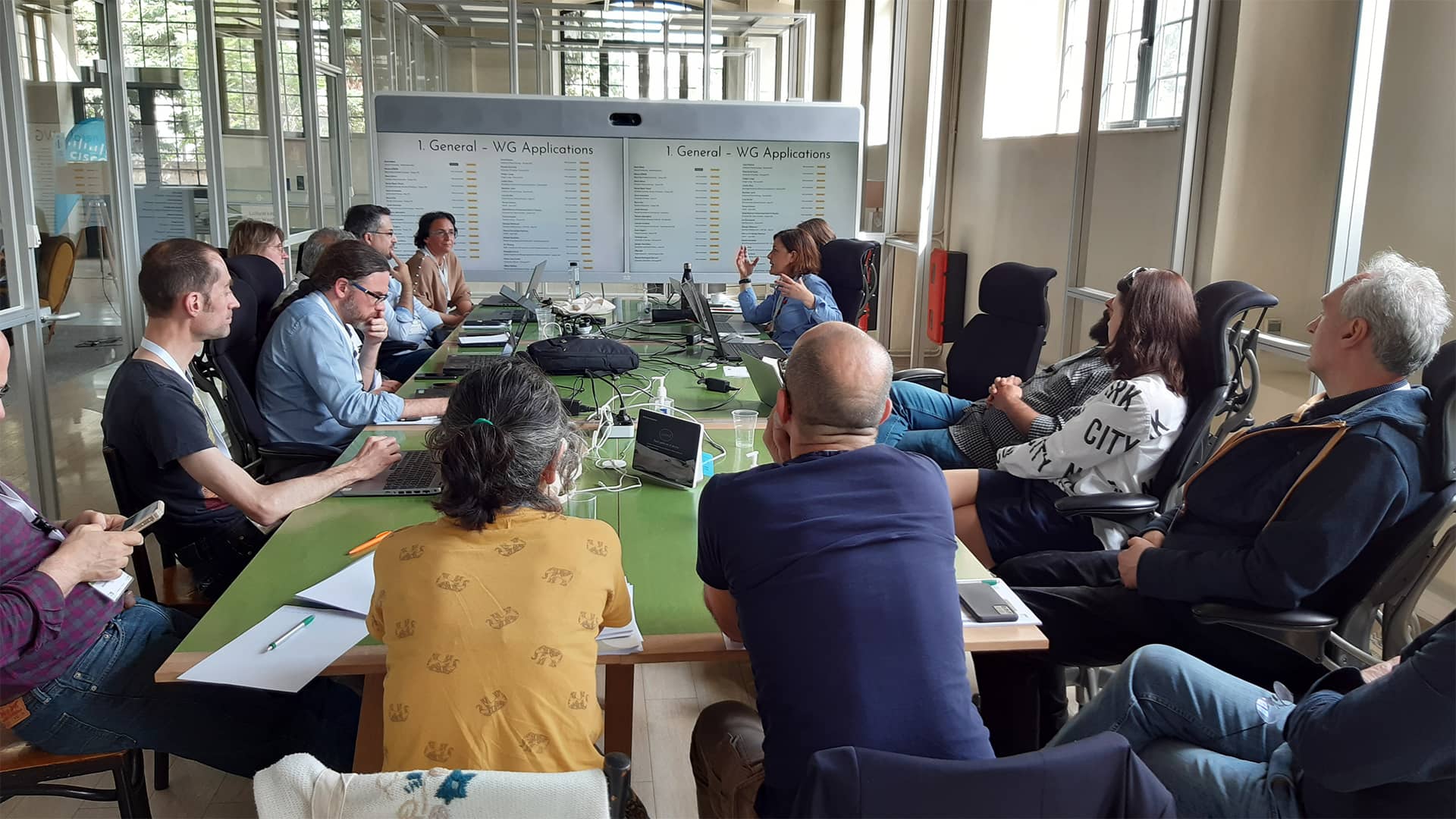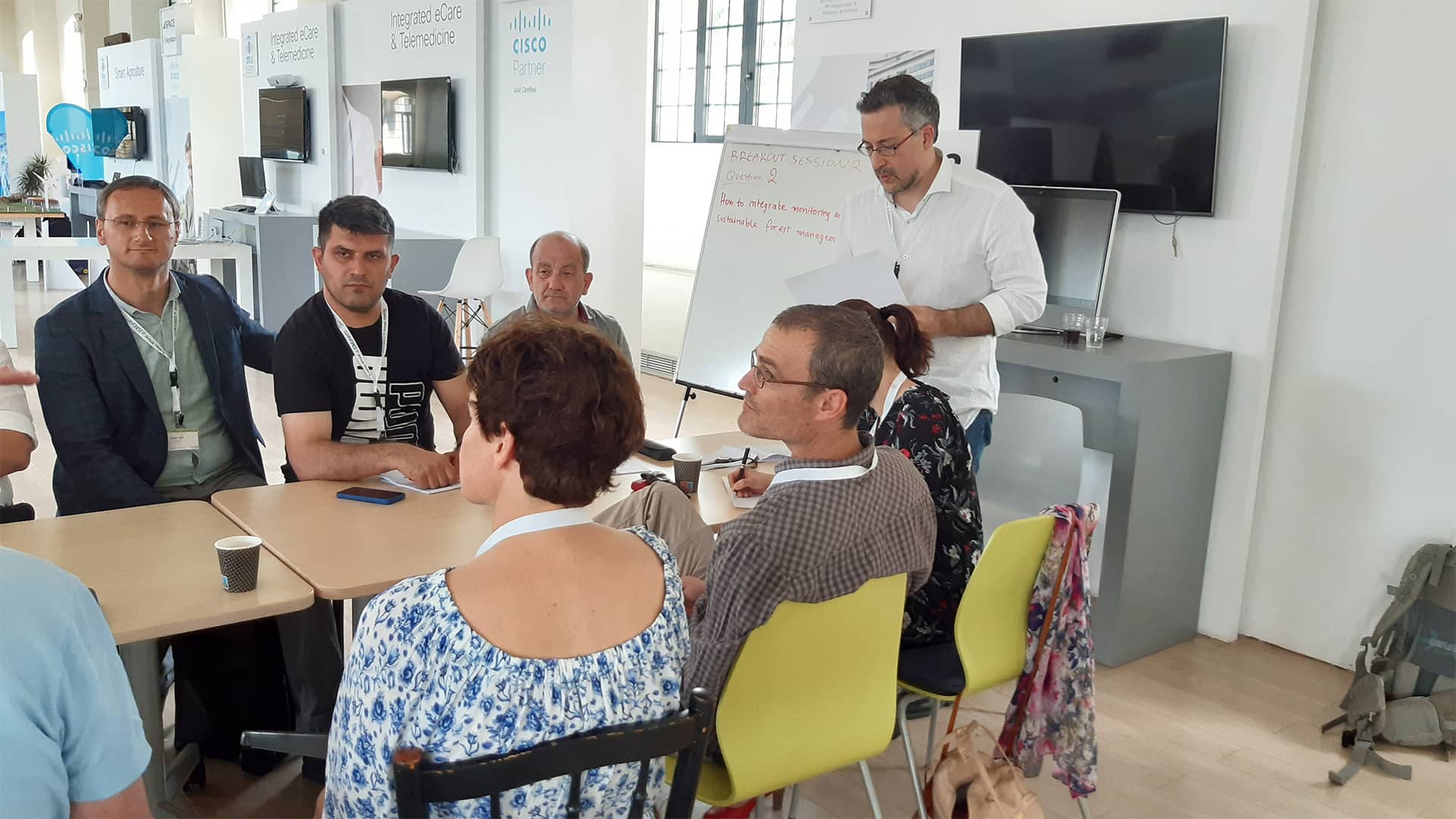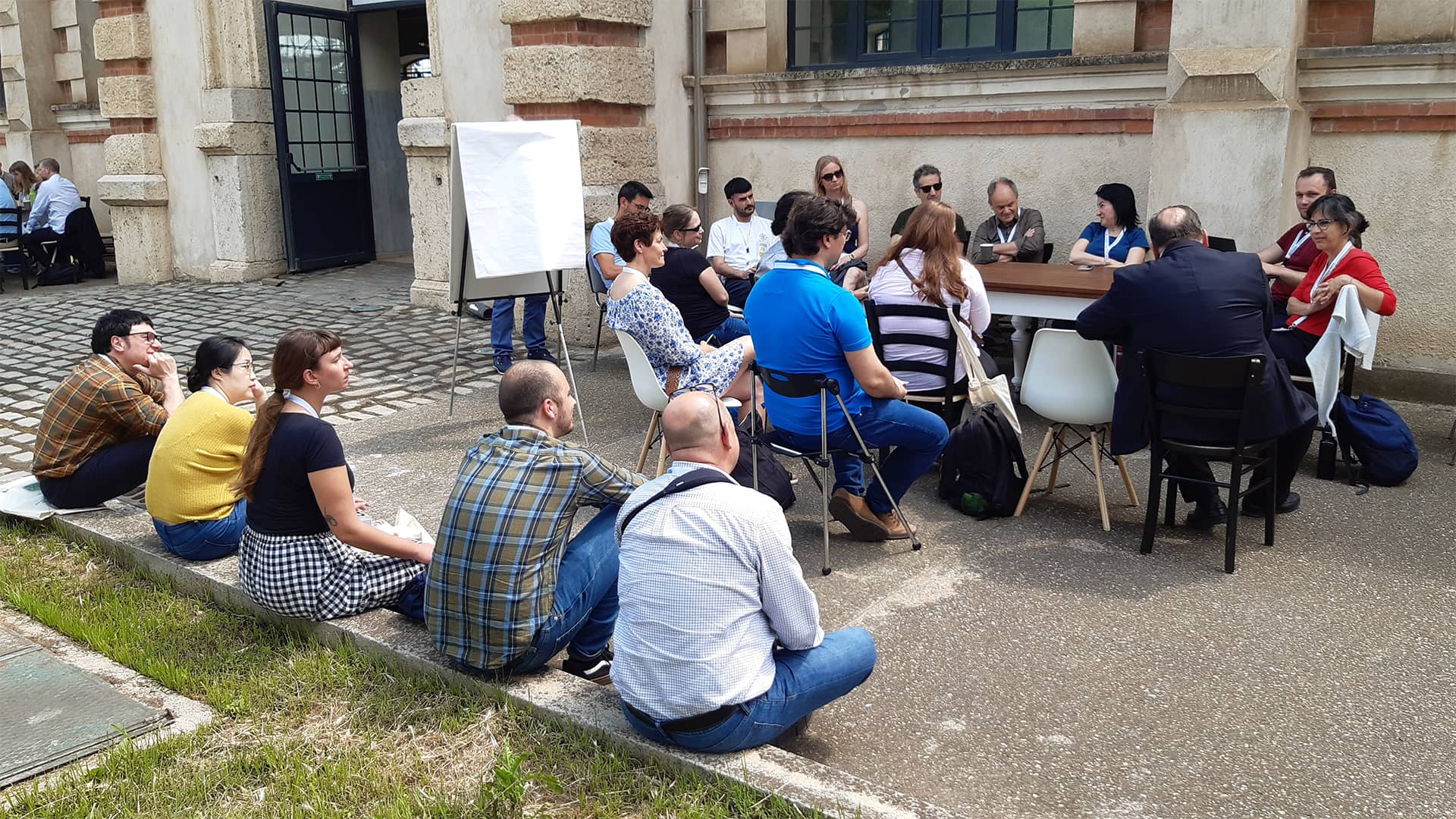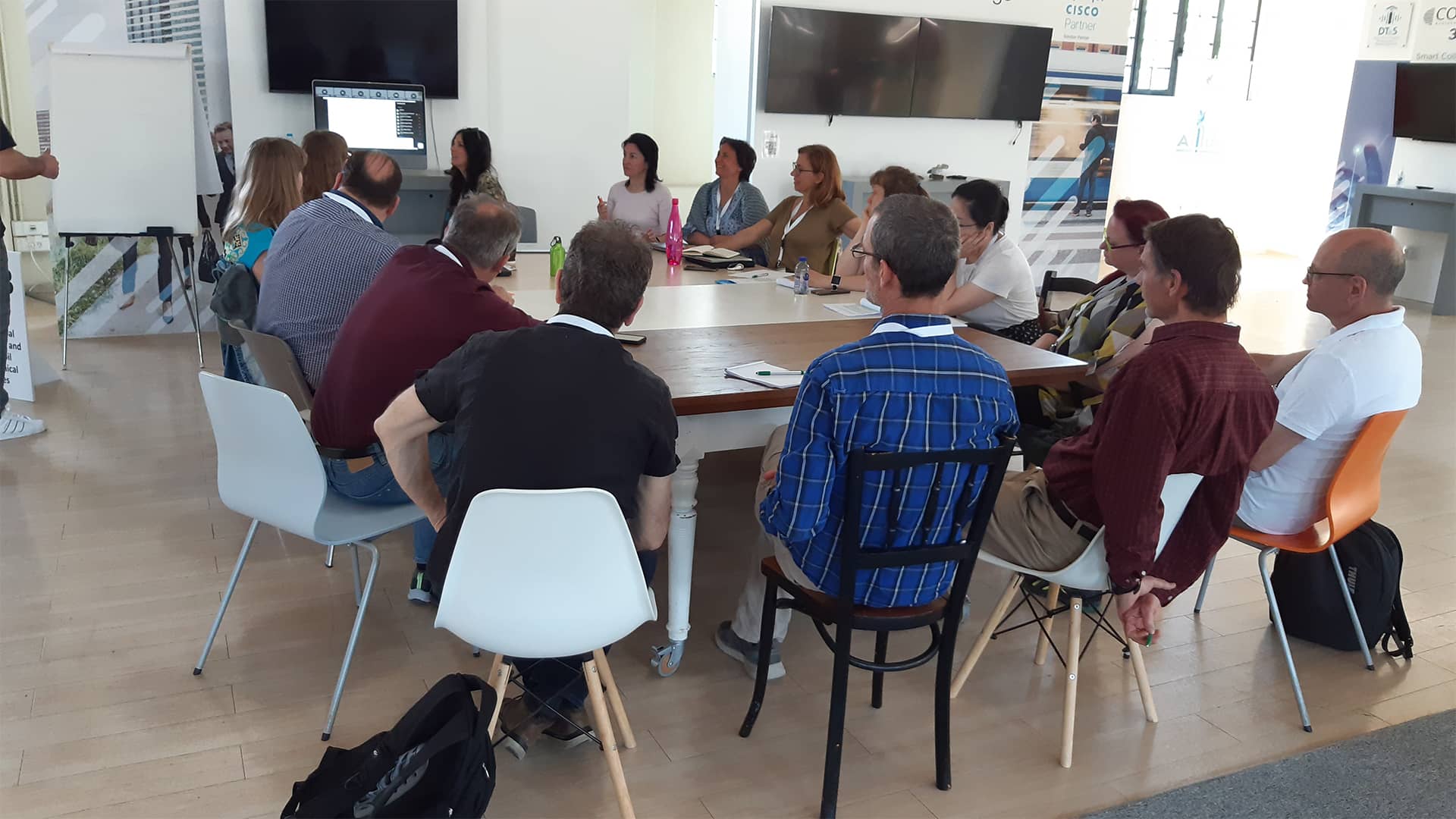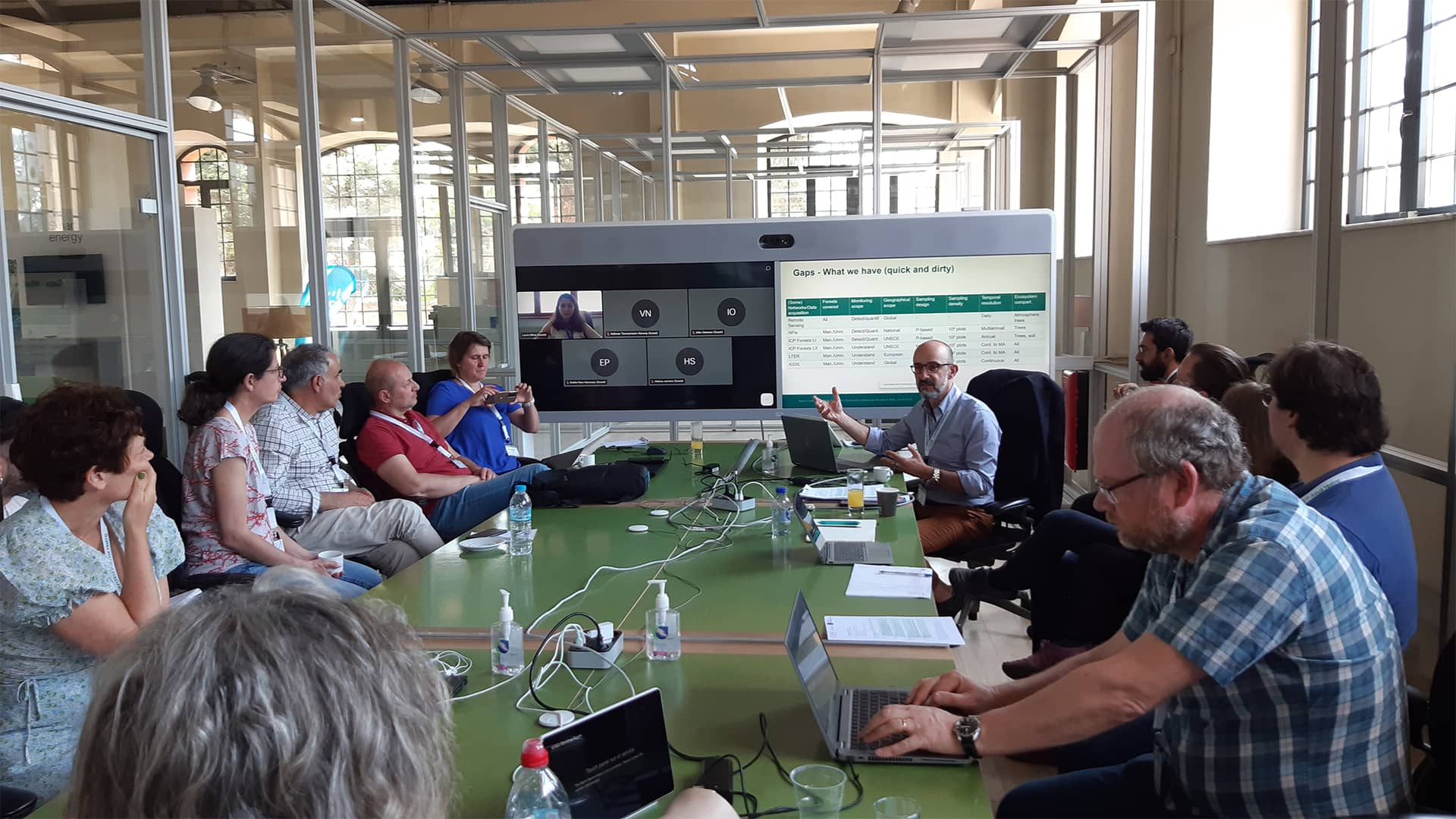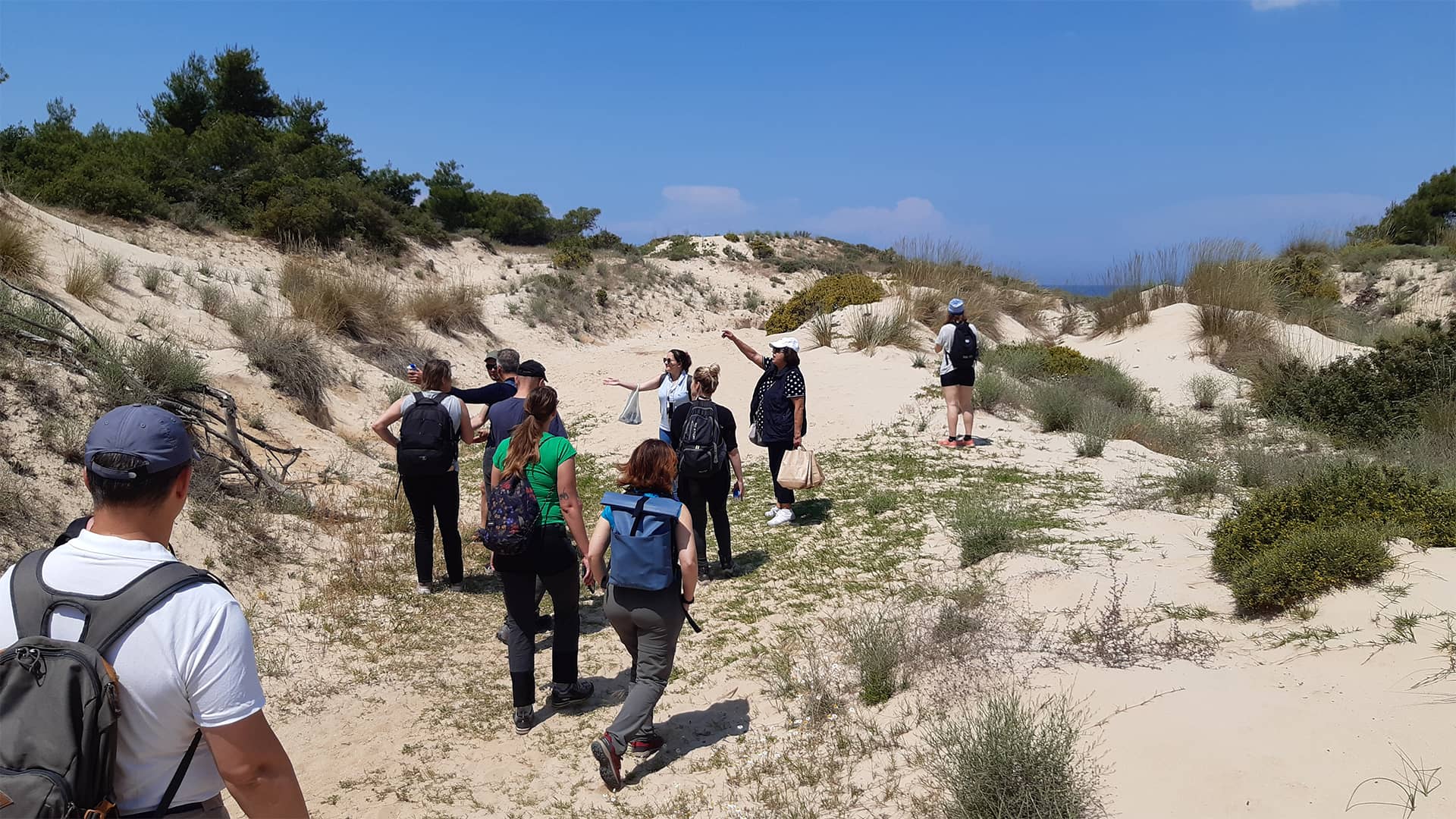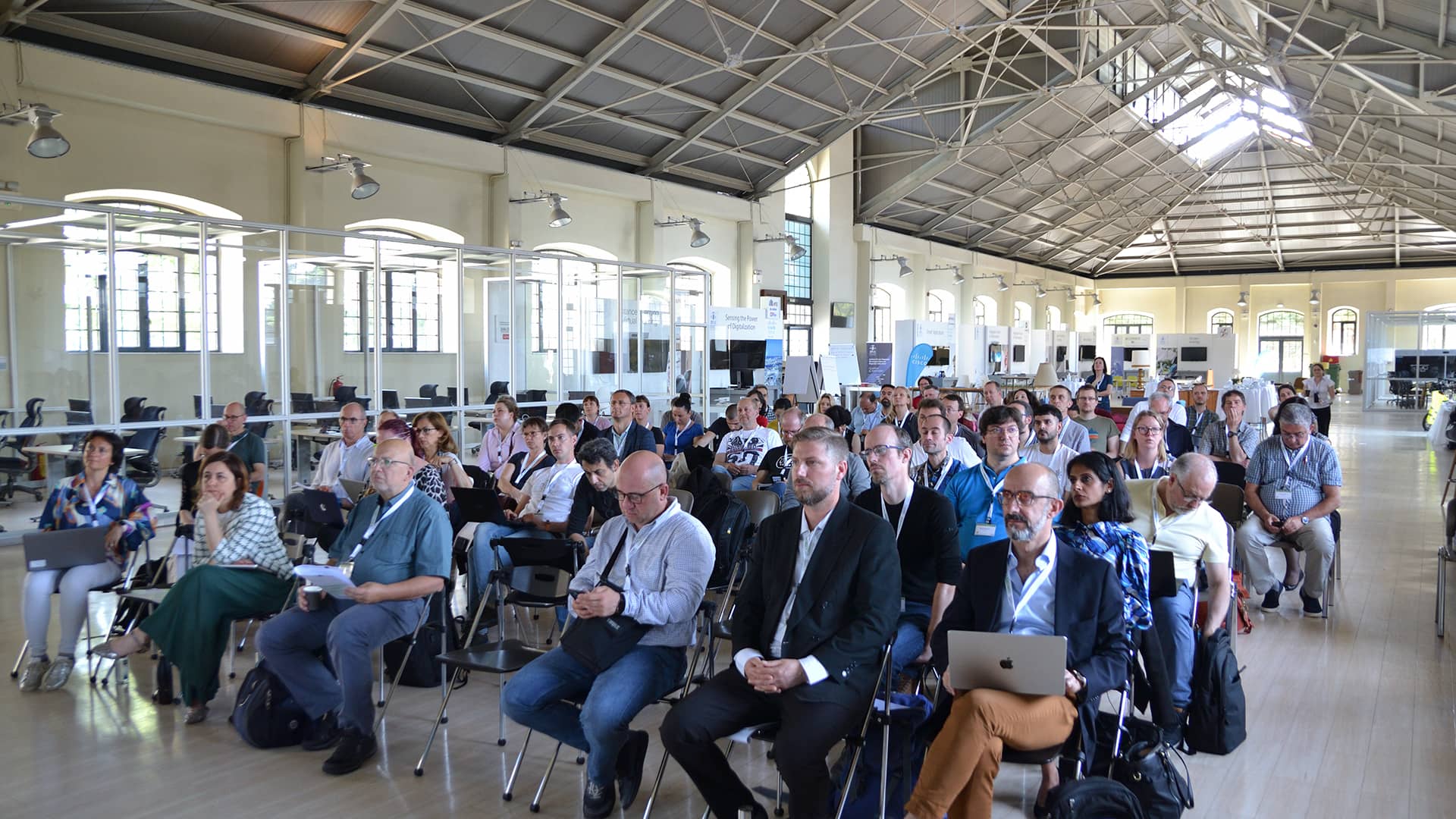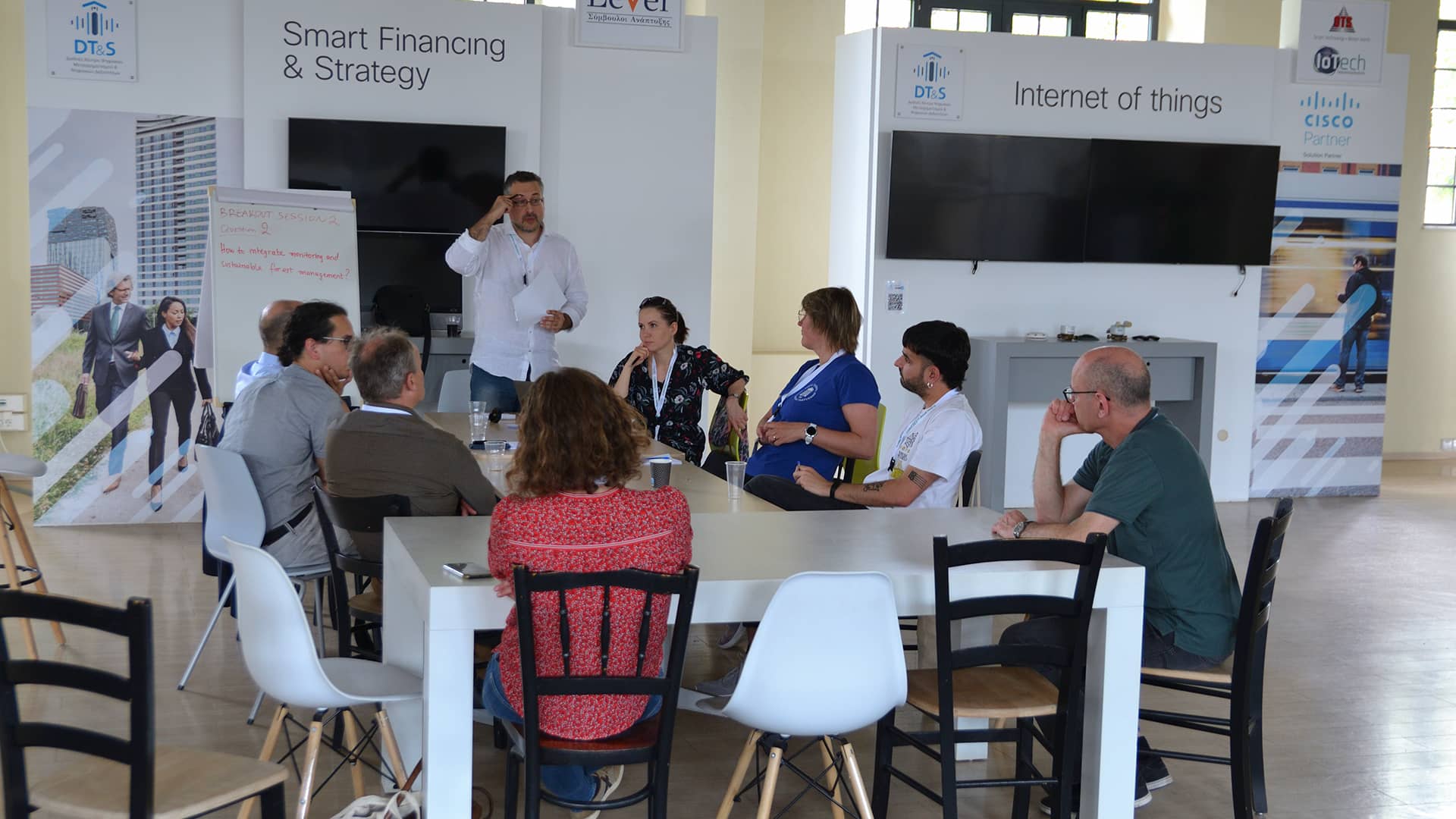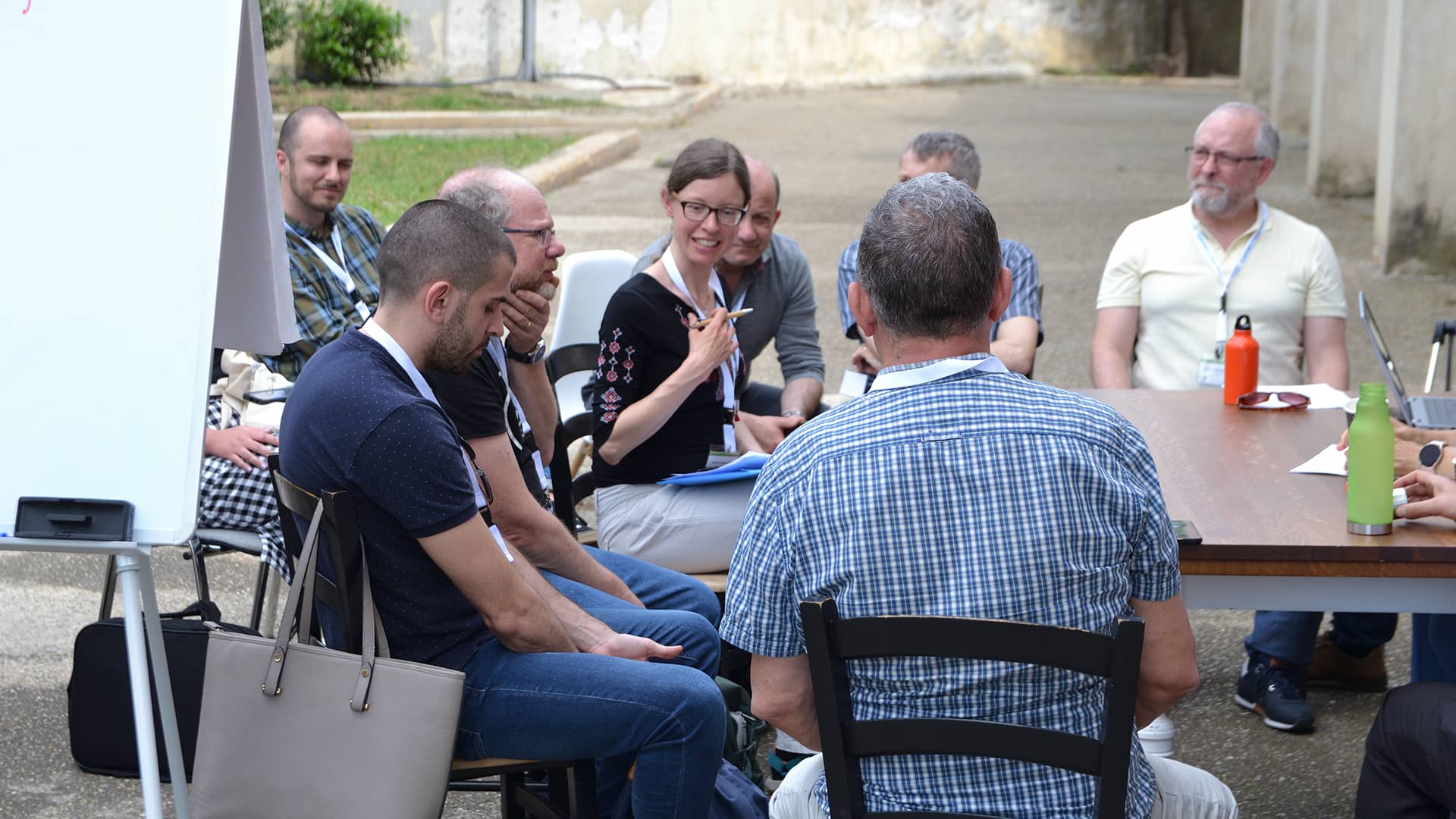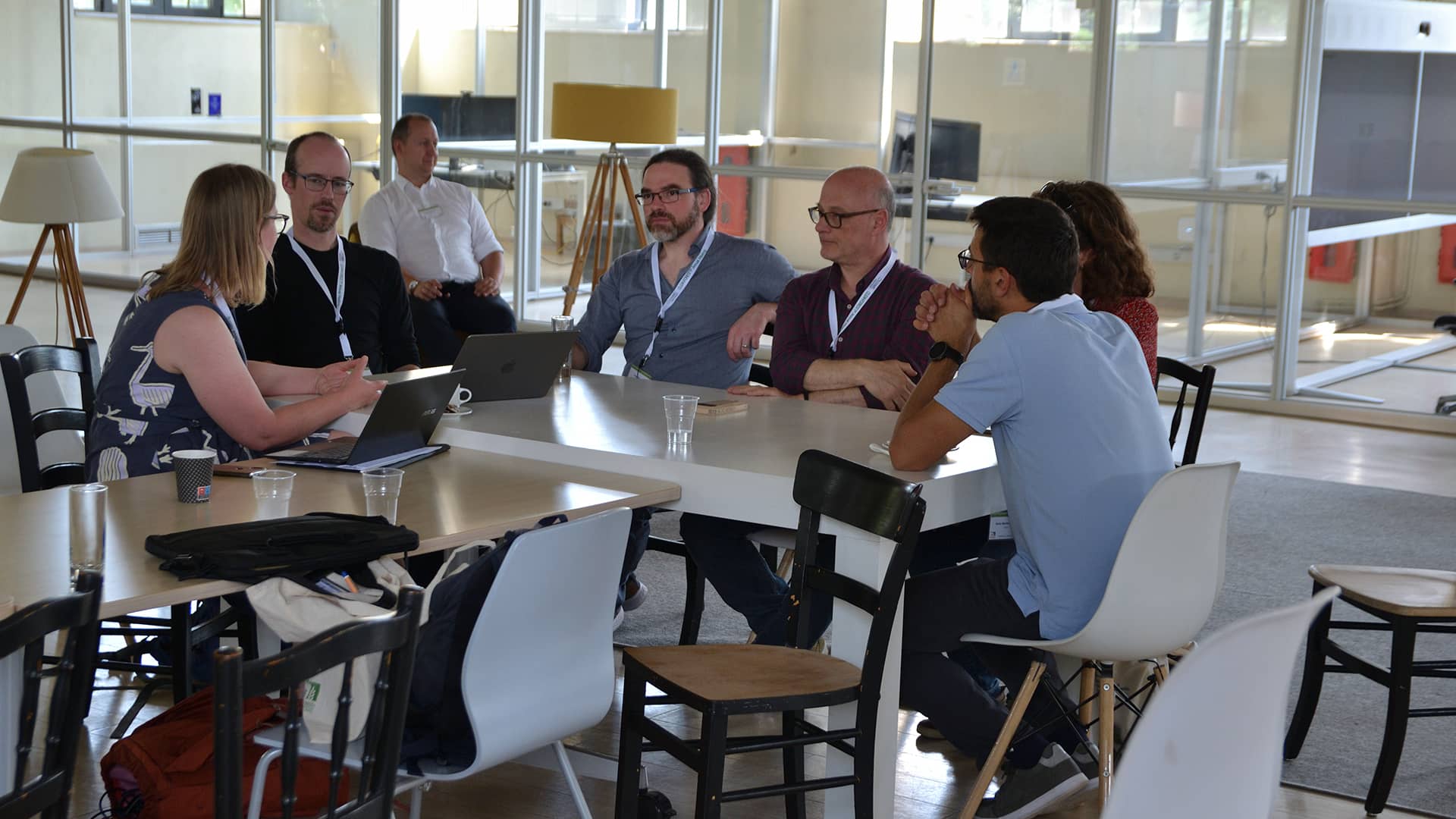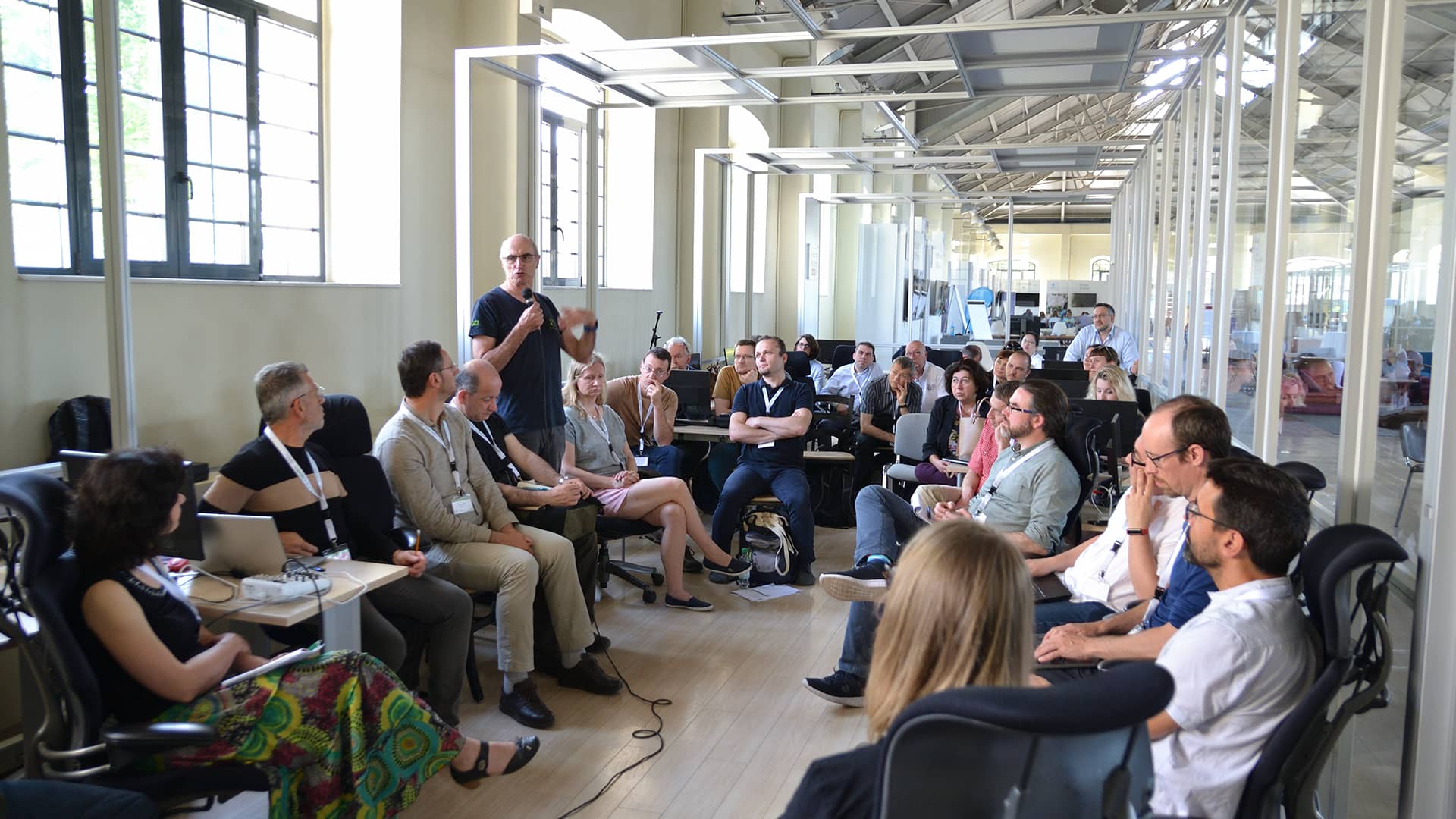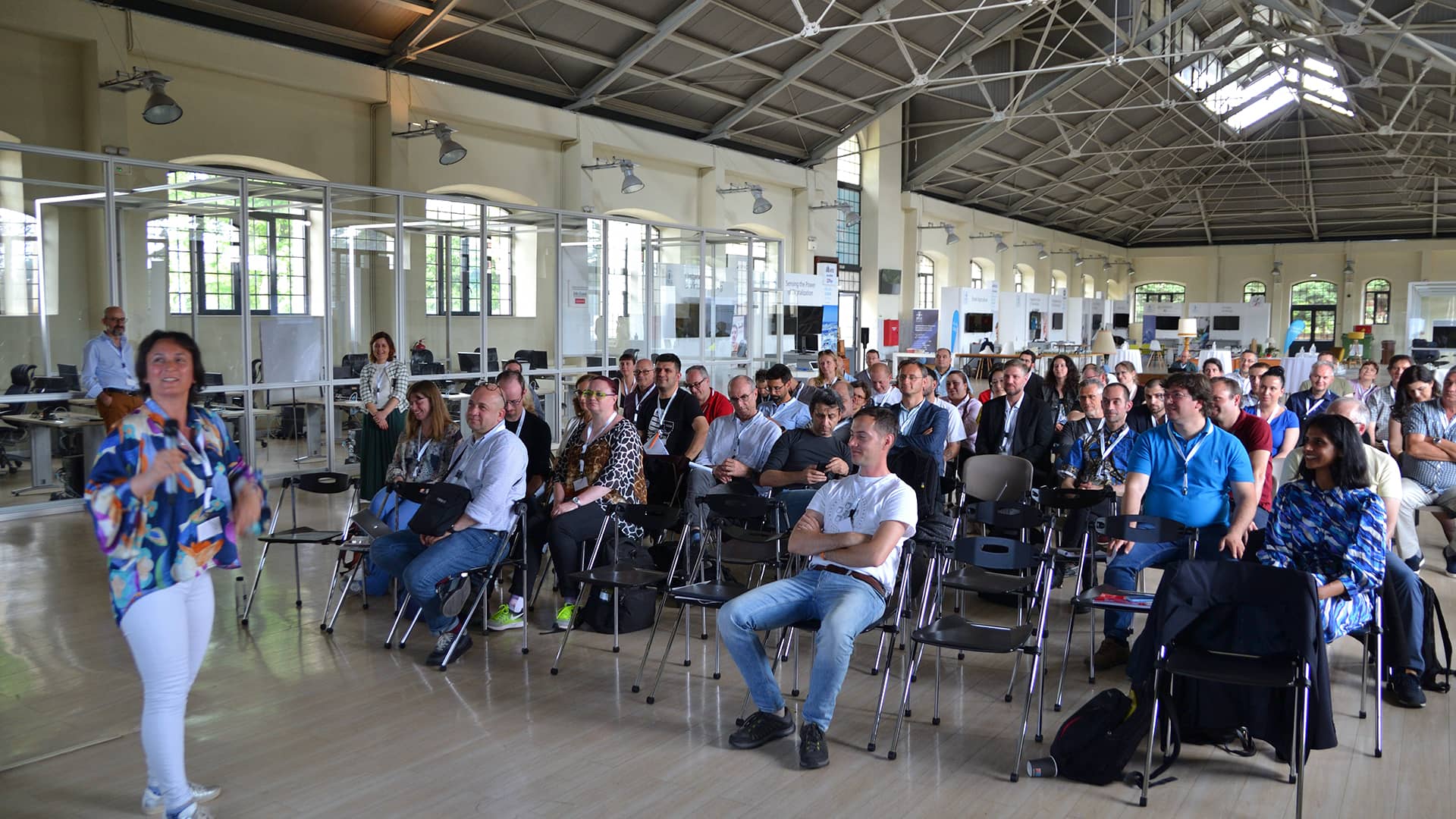Our Action held its first annual meeting in Thessaloniki, Greece, from May 22 to 25, 2023. The meeting took place at the International Centre for Digital Transformation and Digital Skills and was organized by Mariangela Fotelli, MC and core group member and STSM coordinator, and her team. We had 80 participants on-site and about 30 participants could also join the meeting online.
On the first day, we had several consecutive and parallel meetings related to the management of the Action: core group, Management Committee, Grant Awarding, Science Communication and Working Group (WG) core team meetings.
The second day was dedicated to the panel discussion with stakeholders in the morning and breakout sessions in the afternoon with both on-site and virtual participants on the topic: Building a common vision on forest monitoring amid global change: challenges and opportunities. The Plenary sessions in the morning were moderated by Dr. Anusha Panjwani, Head of the Science Department of Cost Office, and featured several distinguished speakers.
First plenary session Moderator: Dr Anusha Panjwani, Head of the Science Department, COST Association |
|---|
Integrating forest monitoring in Europe: perspective of research networks |
Marco Ferretti, Chair of the ICP Forests, WSL Denis Loustau, ICOS France Focal Point, INRAE Nikolaos Nikolaidis, Head of the eLTER-Greece, Technical University of Crete Thomas Pugh, Tree Mortality Network, Lund University |
In the first plenary session ‘Integrating forest monitoring in Europe: perspective of research networks’ representatives of some of the well-established monitoring networks in Europe (ICP Forests, ICOS, eLTER, Tree mortality network) discussed strengths and gaps of current monitoring as well as progress can be made to tackle current challenges.
Second plenary session Moderator: Dr Anusha Panjwani, COST Association Building synergies between researchers and stakeholders |
|---|
Building synergies between researchers and stakeholders |
Thomas Scheuschner, Umweltbundesamt (German Environment Agency) (virtual) Mark Parrington, Copernicus Atmosphere Monitoring Service (virtual) François Jost, European Citizen Science Association Alessandro Cescatti, European Commission, Directorate for Sustainable Resources, JRC (virtual) Marco Onida, Team Leader of Forest, DG Environment, European Commission (virtual) |
The second plenary session ‘Building synergies between researchers and stakeholders’ brought around the virtual table scientists working at the interface with policymakers from Copernicus, JRC and German Environment Agency as well as relevant stakeholders like the representative of the European Citizen Science Association and the team leader of the Forestry team at the DG Environment at the European Commission. Take home messages from the invited talks and the panel discussion were:
- Harmonisation of existing networks, data validation and data access are crucial to be able to use them at different levels to tackle current societal challenges.
- Integrating remote sensing in the existing monitoring should be a priority as well as linking processes at different scales.
- Data and information are there to push stakeholder actions, however the mechanics understanding processes at different scales and time resolution needs continuous data collection and funding to support it.
- A comprehensive picture of the state and use of forests in the Europe is currently missing: there is a lot of crucial information out there, but it should be better synthetized and presented so to be more efficiently ‘digested’ by policymakers.
- There is high potential for current monitoring to benefit from citizen science data collection initiatives. Citizen science is a key for linking people, science and stakeholders.
As Dr. Panjwani beautifully summarized at the end of the plenary session, ‘involving citizens and scientists in the policymaking process more at the draft stage’ will lead to a ‘co-design and co-production policy and not just implementing policy on the ground’.
In the afternoon, on-site and virtual participants were invited to join different breakout sessions, moderated by a senior and an early career researcher(s) discussing the following questions:
- What is the next step within each network, and can this step be taken together to tackle common questions and pressures at any level? MODERATOR: Arne Verstraeten; RAPPORTEUR: Caitlin Ruth Lewis.
- How to integrate monitoring and sustainable forest management? MODERATOR: Dimetrios Sarris; RAPPORTEUR: Klaudia Ziemblińska.
- How can monitoring support policymakers? What does policy need from science to deliver the target goal for the forest strategy for 2030? MODERATOR: Rocio Alonso; RAPPORTEUR: Robert Weigel.
- Can we promote a pro-active participation of citizens in environmental monitoring? MODERATOR: Cristina Branquinho; RAPPORTEUR: Charlotte Angove.
Dedicated rooms to breakout sessions were also organized for virtual participants and discussions were moderated by Yann Salmon, Elena Vanguelova (on-site) and Silvana Munzi (virtual), RAPPORTEUR: Danielle Creek and Pál Balázs.
At the end of the day, rapporteurs summarized key points discussed in each breakout session. It was an intense and very stimulating day, with lots of interesting points brought up during the panel discussion and the breakout sessions. The topics addressed in the panel discussions will be elaborated further in a position paper led by members of the core group; whereas the outcome of the breakout sessions will be summarized and shared on the website – stay tuned!
On the third day WGs were for the first time coming together to discuss progress and strategic plans for the rest of year 1. After a general introduction, participants were able to break out into WG discussions, which allowed them to delve deeply into the subjects covered by the four WGs. WG1 focused on strategies for identifying and collating climate and deposition datasets and monitoring techniques, while WG2 discussed the influence of N/S deposition and climate extremes on forest mortality, growth and water use efficiency patterns across Europe. WG3 worked on the effects of climate extremes on fluxes, processes, acclimation, resilience of EU forests, and the influence of N deposition on belowground C allocation and biodiversity, as well as the interactions and synergies between these topics. The subjects that WG4 handled were manipulation experiments and monitoring networks and the discussion focused on multifunctionality, time scales, monitoring gaps, new perspectives, methodologies, and identification of methodological limitations/uncovered questions. The WGs reported their conclusions at the closing plenary where the strategic committees also shared important news. Yann Salmon reported on the Grant Awarding Committee evaluation of different applications received and those approved and announced the first Grantees of Short-Term Scientific Missions and Dissemination Grants. Katerina Machacova announced the initiative led by the science communication and dissemination team, namely the website, video presenting the Action, article collection for Frontiers of Young mind and forms to gather news/events from participants, which will be shared on social media. The young researchers Coordinator Klaudia Ziemblinska announced the results of the logo contest launched at the beginning of the meeting: the most voted concept was designed by Anastazija Dimitrova – congratulations Anastazja and thanks to all the young researchers in the network who sent their concept. Last, but not least, the vice-Chair Elena Vanguelova presented results from the survey that was organized with the support of Klaudia Ziemblinska to get to know more the participants in our network (the summary will be shared soon). At the end of the plenary, there was an open discussion moderated by the Chair of the Action, Rossella Guerrieri, which was an opportunity to share thoughts on the topics addressed during the panel discussions and breakout sessions, and suggestions to move forward with all activities. Rossella closed the first CLEANFOREST annual meeting and announced where the annual meeting will be next year… but it will be a surprise, so stay tuned!
On the last day, a field trip to the Sani Environmental Observatory at Kassandra, Chalkidiki took place. During the field trip we visited the eLTER site of Sani Environmental Observatory at Chalkidiki, which is run by the Forest Research Institute of the Hellenic Agricultural Organization Dimitra with the support of Sani SA. The eLTER site is located at a complex of a coastal, natural Aleppo pine forest and wetlands, and is one of the 9 sites comprising the LTER Greece monitoring network. We were guided through the ecosystem and the infrastructures installed there (Eddy Covariance tower, soil respiration analyzer, meteorological station, sap flow sensors) and discussed the parameters that are recorded (ecosystem’s carbon stocks and fluxes, growth, natural regeneration, as well as the area’s vegetation and the presence of insects and small mammals). We had the chance to discuss the applied methodologies, to identify linkages with other monitoring sites and networks, as well as gaps and points for improvement.
Our first annual meeting was a great success, not only for the stimulating discussion but also for the connections established among participants in the CLEANFOREST network. We’re grateful to our organizers and everyone who was able to participate in any way. Looking forward to our next annual meeting in 2024!

